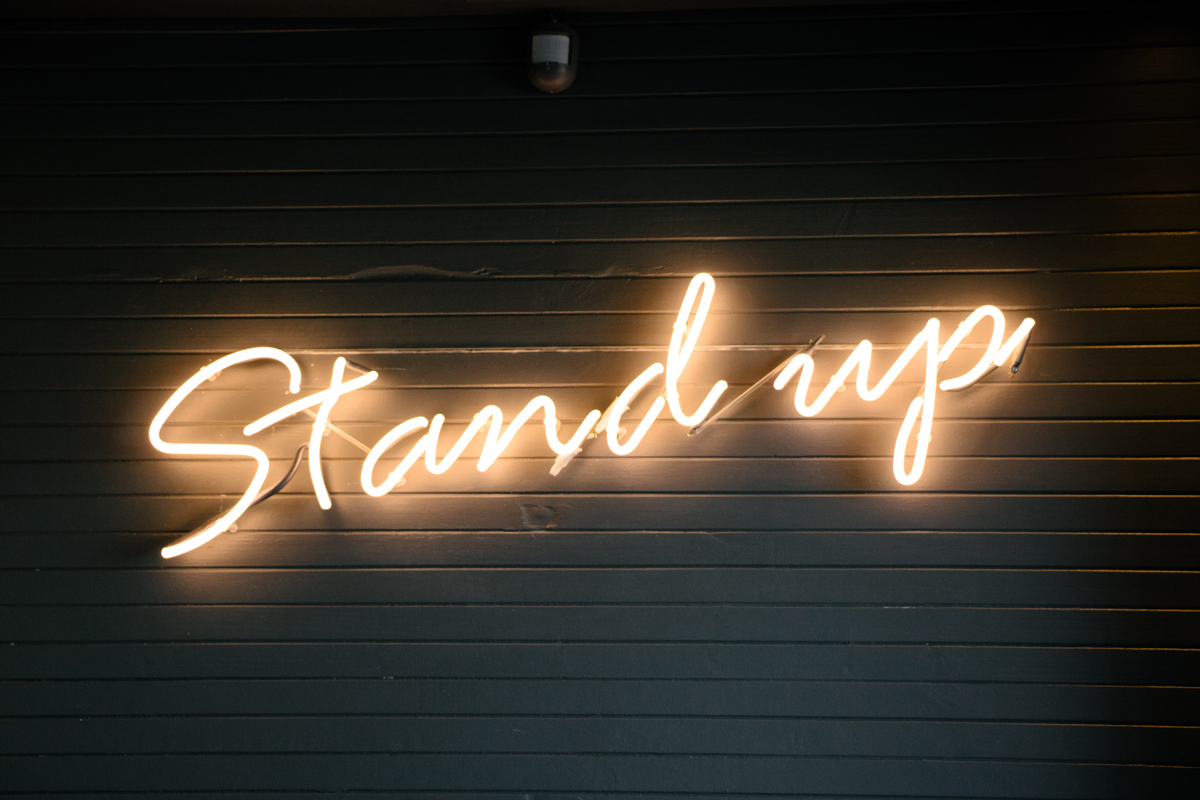Stand-Out Poetry and Stand-Up Comedy: 4 Funny Pairings
Can poetry benefit from humor? Though some might be surprised, the answer is a clear “yes.” Humor can help poets establish voice in their work, lead to interesting contrasts in tone, and help balance serious or emotional moments. Likewise, poetry and comedy share plenty of similarities: Both poets and stand-up comedians attract audiences by being honest and saying the things that few others will admit out loud.
Furthermore, both poetry and stand-up comedy have been deemed “modern obsessions,” with poetry sales growing and stand-up comedy becoming a popular genre across streaming platforms. In fact, pairing poetry with comedy might introduce a way for fans to indulge in both the light and the dark, experiencing the full spectrum of human emotion. These poets and stand-up comedians muse on like-minded themes.
1. Ali Wong’s Baby Cobra and Tess Guinery’s The Apricot Memoirs
Ali Wong’s special Baby Cobra boosted representation of pregnant comedians and comedians who are moms. Not only does Baby Cobra showcase that mothers can still make art, but it also reveals that motherhood can be a driving factor—Wong’s hilarious insights on conception and pregnancy skyrocketed the relatable special to the top of Netflix’s most-watched list.
Similarly, Tess Guinery’s bold and playful collection The Apricot Memoirs takes inspiration from both unabashed authenticity and motherhood. Both works of art embrace a bold voice and revel in not taking things too seriously.
2. Nikki Glaser’s Bangin’ and Erika Meitner’s Makeshift Instructions for Vigilant Girls
Both poetry and comedy possess a reputation for taking what’s often private into the public sphere. For Nikki Glaser and Erika Meitner, this often unspoken inspiration is how sexuality relates to the experience of girlhood and womanhood. Both iconic voices push back against the perception that women shouldn’t talk about sex or their bodies, instead mining these topics for rich and complex personal stories.
From fantasies to insecurities, Glaser and Meitner both reflect on how sexual experiences can reveal deep-seated truths. Both works also make important points about the realities of sexual violence, catcalling, and what it means to navigate the world in a female body.
3. Hasan Minhaj’s Hasan Minhaj: Homecoming King and To Keep from Undressing by Aisha Sharif
In Hasan Minhaj: Homecoming King, the Patriot Act host peels back the layers and reminisces on his life before fame—–mainly, the forces that shaped it, including immigration, racism, and anti-Muslim sentiment. Minhaj lets fans know what it was like to come of age in the midst of these attitudes and influences in the raw and rare special, which has been praised as both “funny” and “heartbreaking” by critics who appreciate its interwoven, multi-tonal moments.
Aisha Sharif’s To Keep from Undressing takes on similar subjects. Like Minhaj’s special, her collection is broken up into a distinct and evocative “before” and “after”: Before her family’s conversion to the Islamic faith, and afterward. Sharif also plays with both grief and joy, as poems about being discriminated against for wearing a hijab appear right next to poems about dancing in a bright hijab at the club.
4. Jenny Slate’s Stage Fright and Alicia Cook’s Sorry I Haven’t Texted You Back
Anxiety can amplify anyone’s internal monologue, but translating these racing thoughts for others can prove challenging. Both Jenny Slate’s special Stage Fright and Alicia Cook’s collection Sorry I Haven’t Texted You Back accomplish this feat. Though most people think no one would understand their neuroses, both Slate and Cook exemplify that anxiety is relatable and surprisingly universal.




